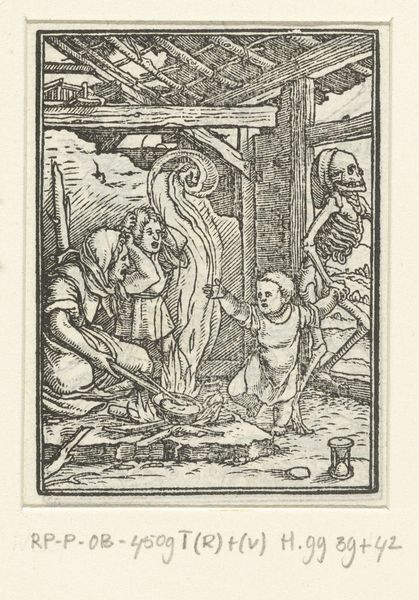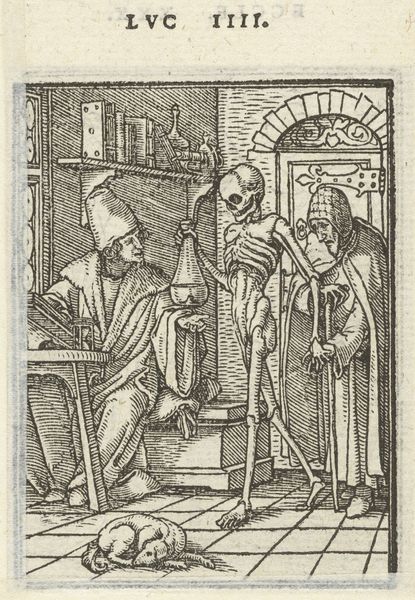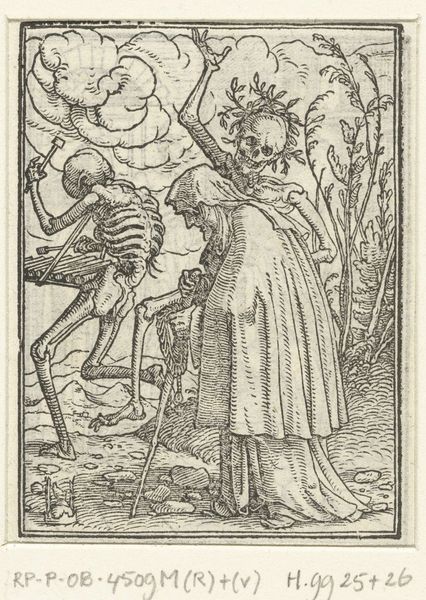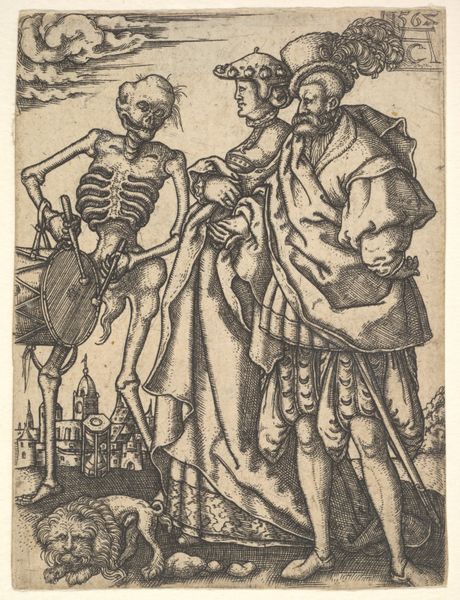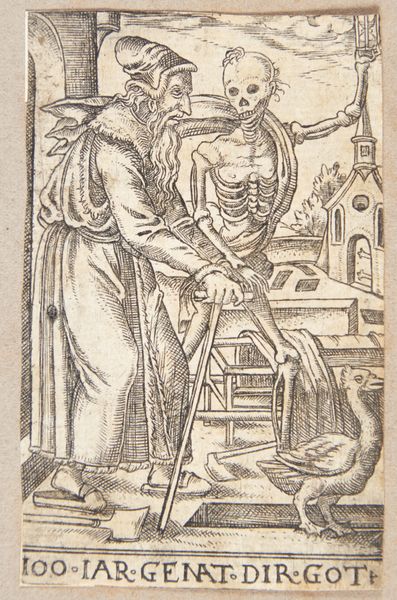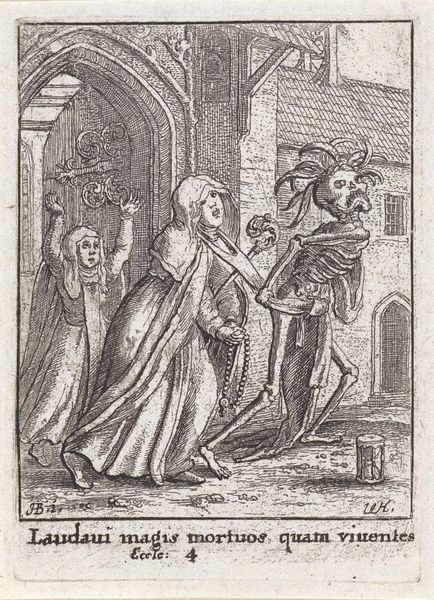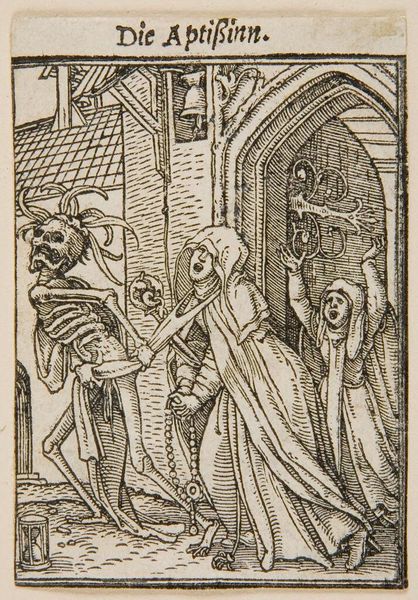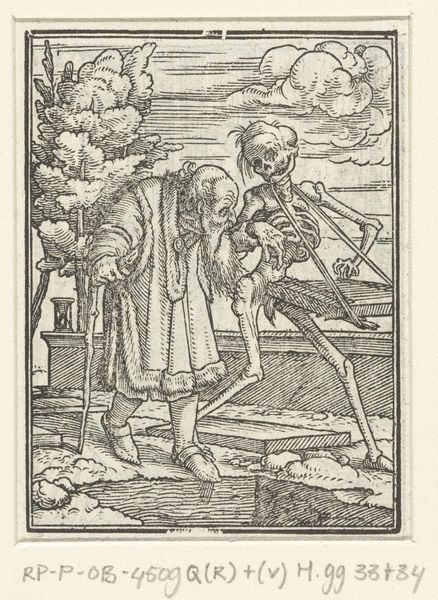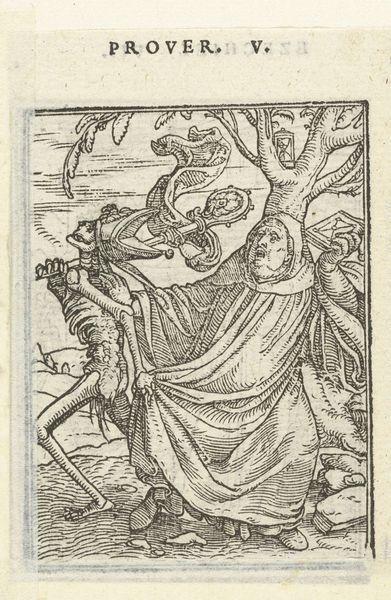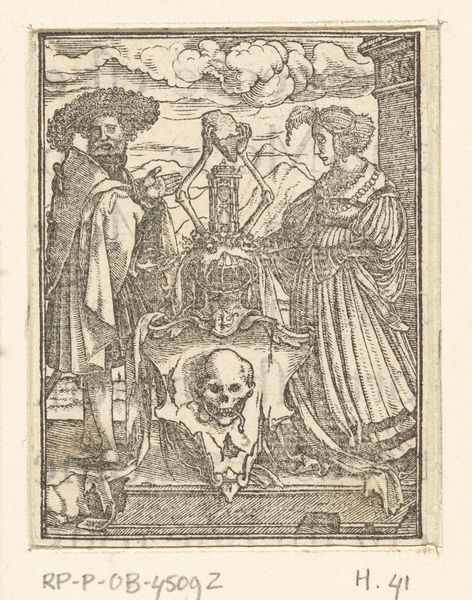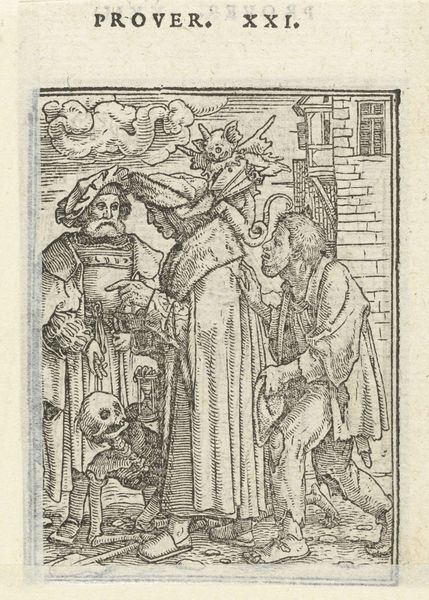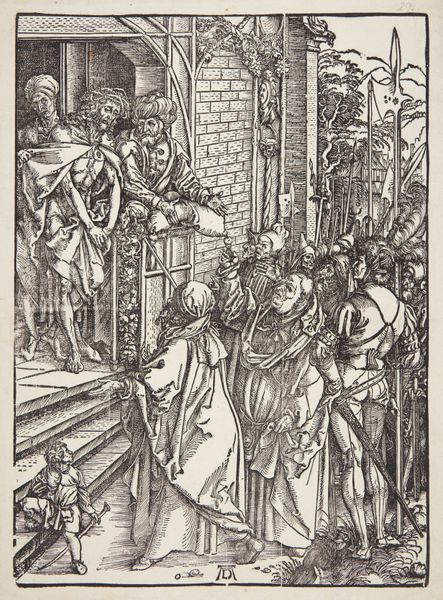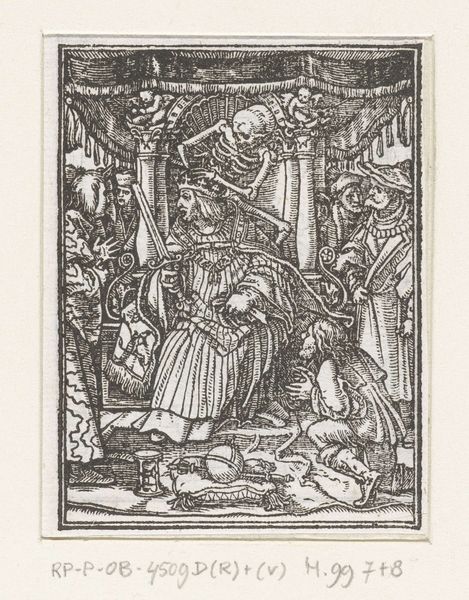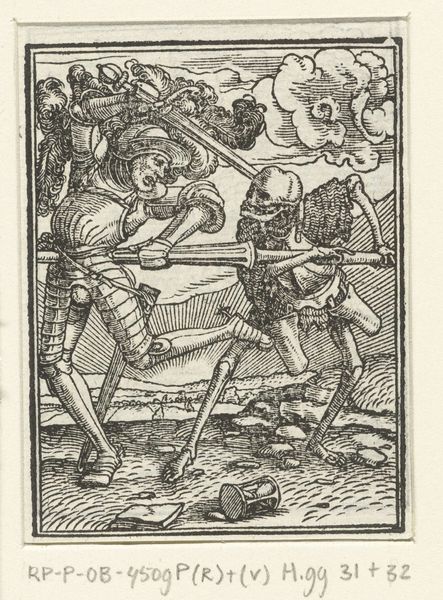
print, ink, woodcut
#
medieval
#
narrative-art
#
pen drawing
# print
#
pen illustration
#
figuration
#
form
#
ink line art
#
ink
#
pen-ink sketch
#
woodcut
#
line
#
history-painting
#
northern-renaissance
Dimensions: height 65 mm, width 50 mm
Copyright: Rijks Museum: Open Domain
Curator: Stepping into the world of sixteenth-century anxieties, we have before us "Abdis en de Dood," or "Abbess and Death" attributed to Hans Holbein the Younger, crafted between 1524 and 1538. It is now at the Rijksmuseum. Editor: Oh, how chillingly beautiful! I immediately sense a kind of macabre dance unfolding, a narrative steeped in medieval fears and, dare I say, even humor, but really black humour, don't you think? Curator: Absolutely. As a woodcut rendered in ink, it embodies the style of the Northern Renaissance through fine, precise lines that compose the figures and architecture with sharp clarity, with a strong visual line that organizes the image. What specific elements capture your gaze? Editor: Definitely that ghoulish Death! Its spindly body yanking away at this rather imposing Abbess. There’s a desperation, you can feel it as she clings to her rosary, perhaps the only tether she has left to the world. What is interesting is Holbein frames death not only as inevitable, but it takes over, like one continuous rhythm. But in the background—is that another figure? Curator: Yes, another sister, caught between horror and resignation, mirroring a spectrum of responses to mortality, framed perfectly inside the architecture. The looming structure of what I assume to be her abbey makes me question its protective properties against the great leveller: Death. Holbein really brings death into the space. Editor: Indeed. Holbein also invites the eye to wander towards the hourglass tucked away in the lower corner – a very unsubtle reminder that the clock is indeed ticking. The narrative composition—Death leading the abbess out through a door is strong, forcing your eyes in a very specific path, a sort of macabre dance. Curator: Holbein presents a very intimate, unnerving dance. Through such careful use of line, composition and stark imagery of both religious status and mortal representation we can find a profound reflection of that moment. Editor: In sum, "Abdis en de Dood" leaves you with a memento mori etched not only in ink on paper but also within your memory, leaving us pondering about fleeting moments between faith and mortality.
Comments
No comments
Be the first to comment and join the conversation on the ultimate creative platform.
